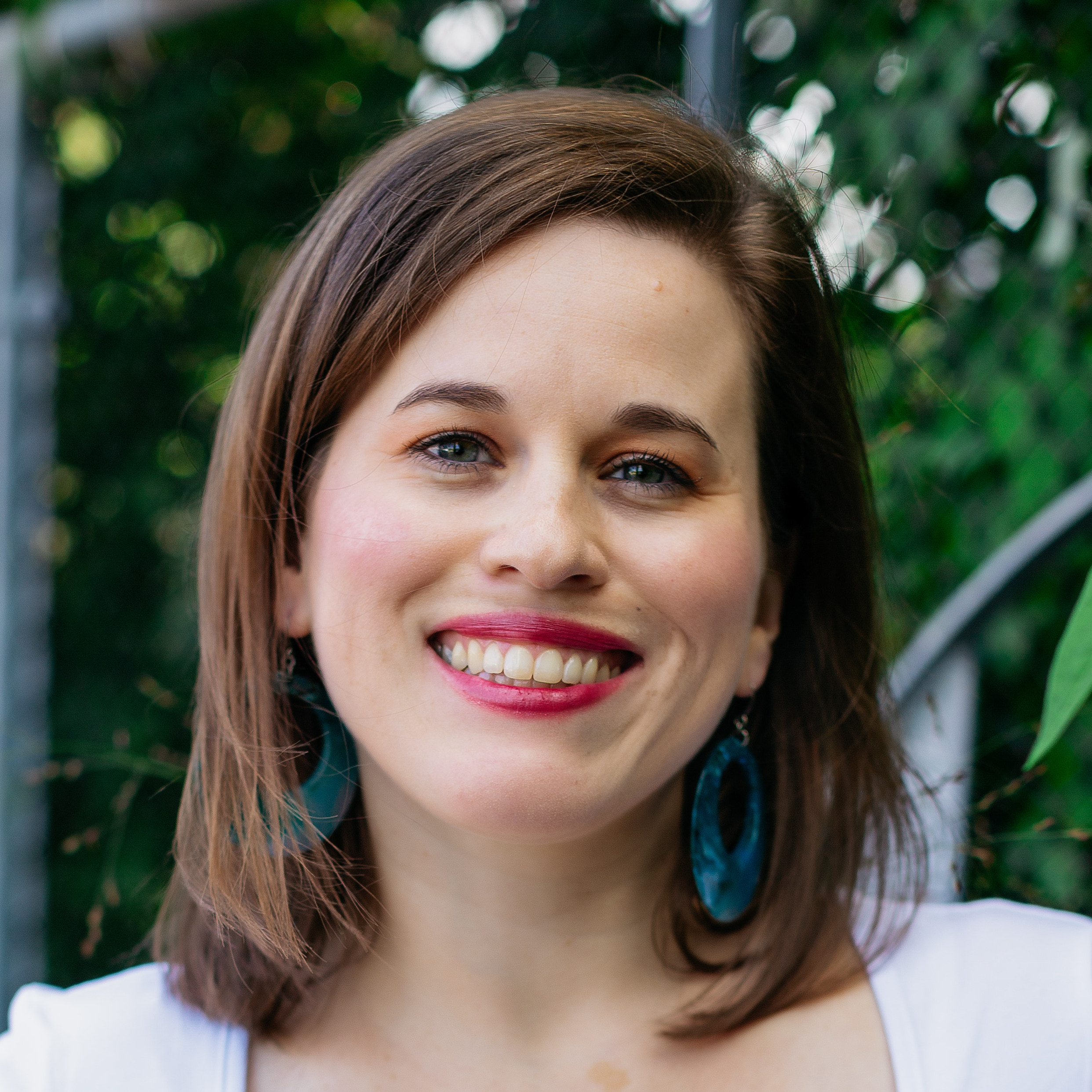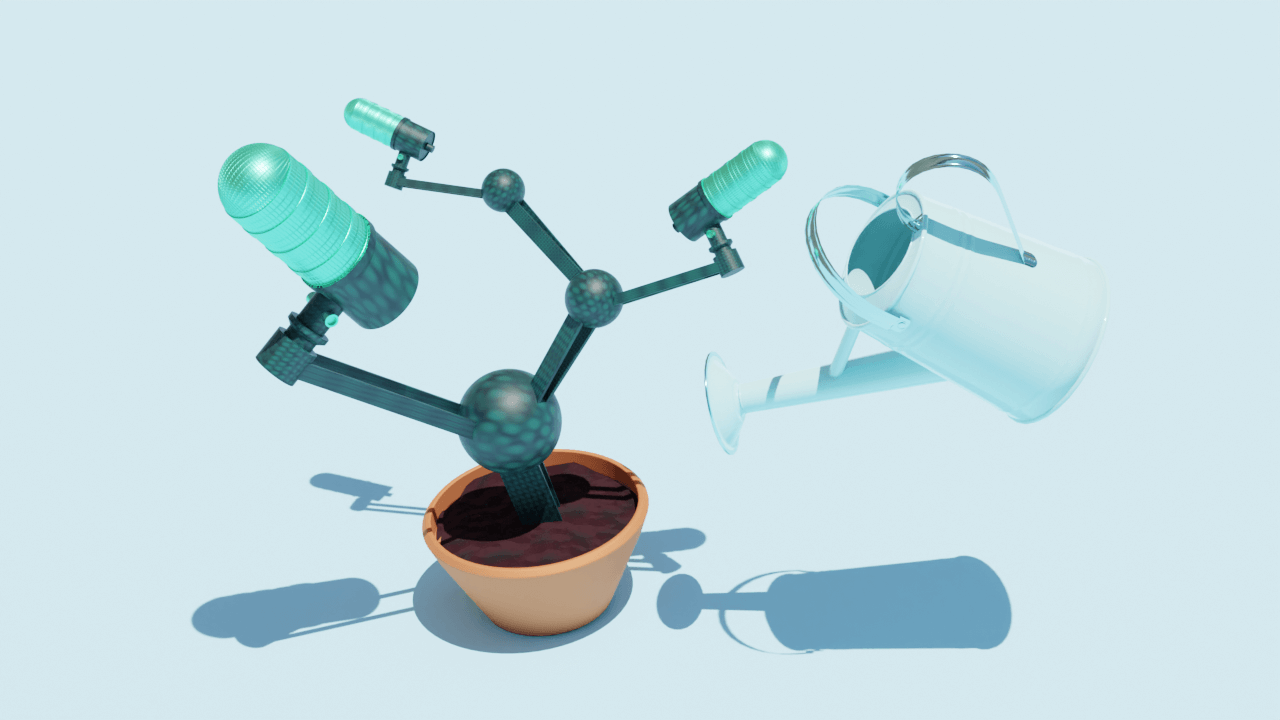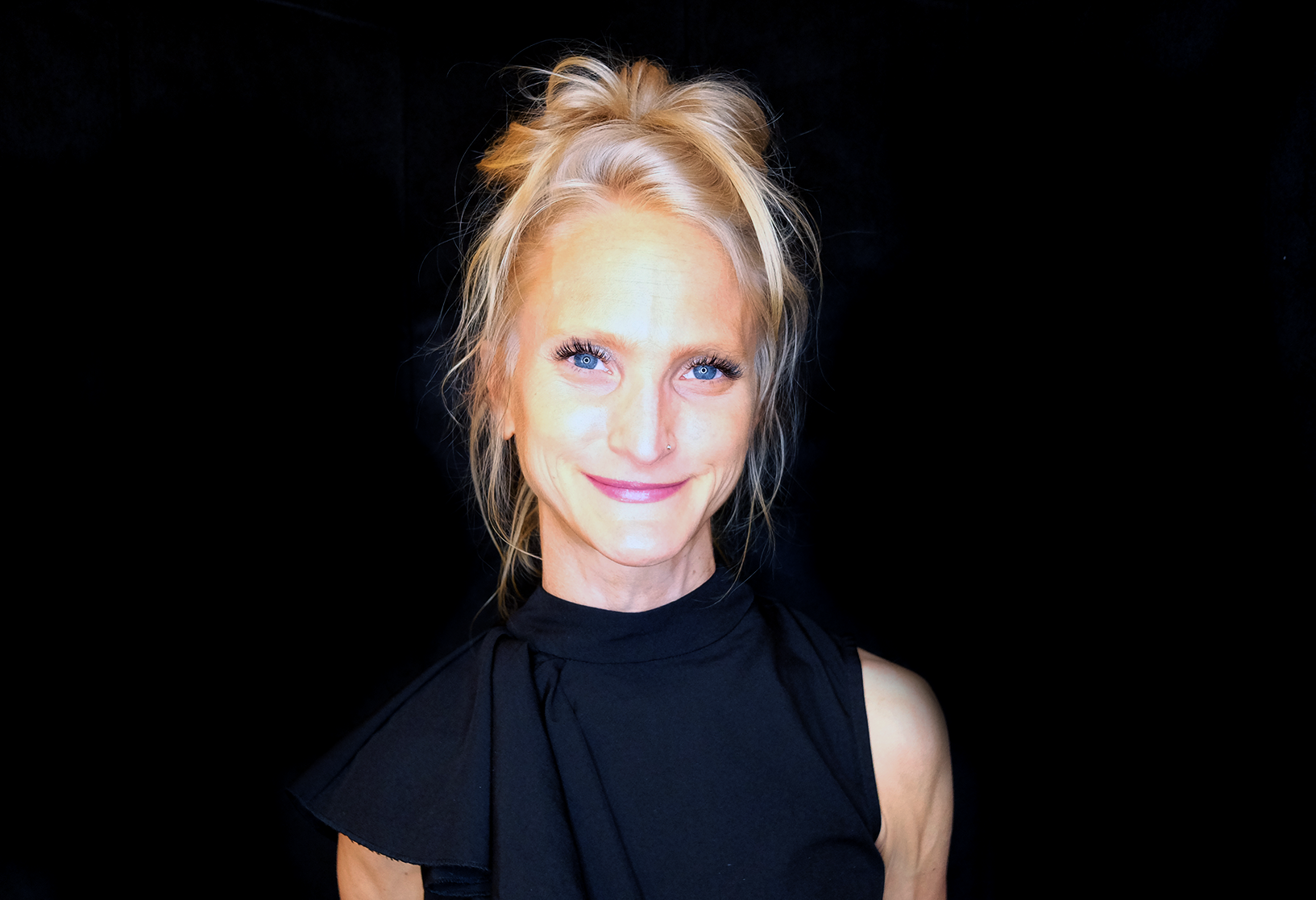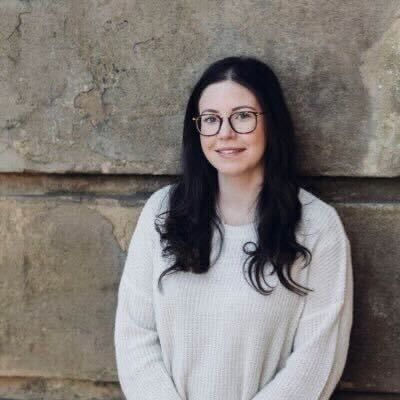How They Made It is an interview series that focuses on indie creators, exploring how they got their start and how their shows and practices have evolved since then. We hope you find inspiration in them for your own creative projects.
If there’s an indie creator who’s hit it big that you think we should feature, send an email to ashley@descript.com.
Ellen Scanlon got into cannabis because of New Orleans’ Jazz Fest—but not in the way you’re thinking. She didn’t take a life-changing hit to some Neville Brothers tune, or satisfy an epic case of the munchies with the best beignet ever.
Instead, it was during the festival that she got into a bike accident that left her in considerable pain. “Throughout the journey of trying to get better, I ran into all kinds of roadblocks, and had to seek out some alternative things, in addition to using Western medicine,” she says.
Ellen’s journey into the wild world of cannabis consumption became the basis for a podcast called How To Do The Pot, which has released more than 200 episodes since it debuted in early 2019. It’s also been featured in Forbes, Vulture, of course, High Times. We talked to Ellen about investing in your projects early, and using LinkedIn to network her way to success. This interview has been edited and condensed for length and clarity.
 |
So you’d gotten interested in cannabis. How and why did you decide to start a show about it?
I'd been living in California for several years. Cannabis was legal. I had a friend from college who had started a cannabis business, and this friend told me that she was finding cannabis was helping women in very specific ways. She had started traveling around and meeting all of these women, and getting this incredible response from women that were using cannabis for fun, but also for their well-being and for their health.
We were trying to figure out how to mesh what we were doing. I had a new baby; she had two kids, so we didn't want to be traveling the way that she had been. I was like, well, I love audio. I probably have 10,000 hours of listening. We decided to do a six-part series that was all of the questions that we were getting about cannabis.
We started working with professionals. Cannabis was new to me, and audio was new to me, and I just couldn't have two brand new things. It took a while. I had to reach out to a couple of different friends. It was the start of my journey as an entrepreneur: if you want to find something, you just have to keep asking people. I had a friend who knew someone at Pineapple Street Studios. I talked to them and wrote a proposal, and they were incredibly nice, but basically were like, ‘This isn't really for us.’
So then we started working with Ben Adair at Western Sound. We learned so, so, so, so much about audio. We had a producer named Stephen Hoffman for a while, and then we ended up working with Gina Delvac, who taught me how to be a podcaster for sure. [Note: We’ve interviewed Gina for Creator HQ several times! You can read her thoughts on finding a good podcast topic and taking a hiatus.]
After the first set of six episodes, I worked with Pod People also for another set. Since then, I've been hiring writers, working with producers. It’s a really collaborative process.
Was it hard to put money into this project from the beginning, knowing that it might not ever pay you back?
At the time, I was a little bit naive—like, everybody loves weed. This is going to be a massive hit, and we just need to get it out there. I also love to read, and the idea that this lives forever, as a library—I felt like there was going to be value in that, regardless of whether we were able to monetize it quickly.
As far as the financial decision goes, I have an MBA; I worked on Wall Street. I had been consulting for venture-backed women's health care startups. And so the investment didn't seem that big to me, to be able to start a platform that had a chance to raise money, and build something really, really big. I was used to working with very big numbers, and I was like, this is a really economical way to start a business.
How else did your finance background play into how the show developed?
I've loved to read since I was a little kid. I studied English in undergrad, so I have an English degree. And then I went to Wall Street.
I worked on a trading floor; I worked for an internal hedge fund. It was this incredible crash course in business. I knew about every company, every news event. It was just following so many stories and then seeing how those stories would have a financial impact. I always found the storytelling element of working in finance.
 |
What did your tech setup look like in the early days?
Our original host was April Pride. This was January 2019, pre-Covid. She belonged to a coworking space in Seattle and they had a podcast studio, so she would record there.
When COVID hit, that's when we found SquadCast. We started asking around to figure out how we could do recordings on our own, which was so much less expensive. We'd been paying for studio time. When we had guests, we would pay for their studio time.
So how do you record the podcast at this point?
I've had two podcast studios. I live in San Francisco, and both of them were in closets underneath staircases, which is a very San Francisco thing. It’s great from a space-saving standpoint, but if you have anyone else in your house, when they're going up and down the stairs when you're trying to record, it's not ideal.
I have a Blue Yeti microphone and some over-ear headphones. I have two ring lights, because there’s no lighting in there. And then SquadCast, and that's how we record.
How did you start building an audience for the show?
We’ve worked with several PR teams. There’s launch PR, which I think is really, really helpful, especially if you are launching this show with the idea of learning from the launch. Who is responding? Who is interested in this?
We worked with a woman named Meggan Ellingboe, who really helped us frame out the interest in cannabis, and the challenges that we faced with cannabis, which were large. I think that from the growth of the business standpoint, bringing in a PR expert at launch helped to expand my vision for how and why the show could grow.
At the beginning of the pandemic there was an increase in listeners because people wanted to know about cannabis, and because people were at home. Cannabis was named an essential service in the early days of the pandemic, which was very impactful for the industry because it was open alongside pharmacies and grocery stores, and really considered essential medicine. It was this really big moment to have this line in the sand: cannabis is important for people who are struggling.
I was getting so many texts from friends. There was a lot of interest in cannabis, and there was access. So those two things I think also really helped our show. I was able to share episodes about things we'd already talked about. We grew by word of mouth.
We also worked with Tink Media for a while. They helped us enormously. They're incredibly well-connected, smart, savvy, marketers. They want the podcast industry to grow, and they want the shows that they work with to grow. That helped to introduce us to the podcast industry, and really helped me to see that I have a business that's in two different industries: cannabis and podcasting.
Working with Tink was very flattering, because they told us how creative we were all the time. No one's doing this, no one's thought of this. I was like, well, we don't have a choice!
Read more: Tink Media founder Lauren Passell on 3 ways to market your brand new show from scratch
Can you give me an example of something you were doing that no one had thought of?
Whenever I really need to think, I get by myself, outside. I was hiking in Marin, and I was trying to think about the biggest challenge that cannabis brands face in getting new consumers.
You still have to buy weed through a dispensary. That is the biggest challenge for a lot of people. And so I was like, what if we just started a series where I asked people to tell the story of the first time that they bought legal weed, and we'll put it on the air? I need to get some downtime, where I have an episode that can go out [that I’m not on]. Because this weekly pace is very strong.
So we started asking on our socials; we sent it out to a couple people we knew. This was 2021; I still have stories now that I haven't put on the air yet. Tink loved it from the beginning, and their love for it helped me to see how valuable it is because it's a collaboration with our listeners. Everyone who's been on a podcast wants to tell at least one friend.
The entire energy behind the show was, this woman is telling you her story so that you feel better. And we really framed it that way and continue to frame it that way. You may not have a friend who loves weed, who can go to the dispensary with you. But all of these women are here to make you feel more comfortable and help you have a good experience.
 |
How did you start to monetize the show?
The most important thing for me has been to maintain the trust of my audience, so I've tried to make the ads really fun and really relevant. I try to match the content.
I do a lot of series, because I feel like those are easier to kind of wrap your head around. They're also just more fun for me. So I have series, and then I have recurring shows. So we have a series on the essential strains that every woman needs for her stash. Those don't have to go out all the time, but that's a show that can come once every couple of weeks.
I think that it really has helped with advertisers, because I have a content calendar that has a variety of choices. A lot of brands were really interested in our sleep series. Brands have been interested in our weed drink series. We have a menopause series coming up.
The thing I'm excited about with monetizing the community is actually not related to ad sales. I think that ad sales are always going to be a possibility, especially as the audience grows. But I'm going to be transferring our newsletter over to Substack, which has an option for a paid tier. I'm working on some limited-edition product collaboration drops. Having a direct financial relationship with our audience is something that I am incredibly excited about.
What advice would you give to someone who wants to start a podcast?
It’s very practical advice: get on LinkedIn. Start following all of the people who run all of the podcast companies. Follow all the podcast companies.
I think that for a long time, Twitter was where a lot of podcasters were. But as all of the channels evolve, LinkedIn is just a business channel. And if you want to learn, to figure out who the players are in the industry, and make sure you're following the right news, it's an incredible resource.






%20(1).JPG)

























